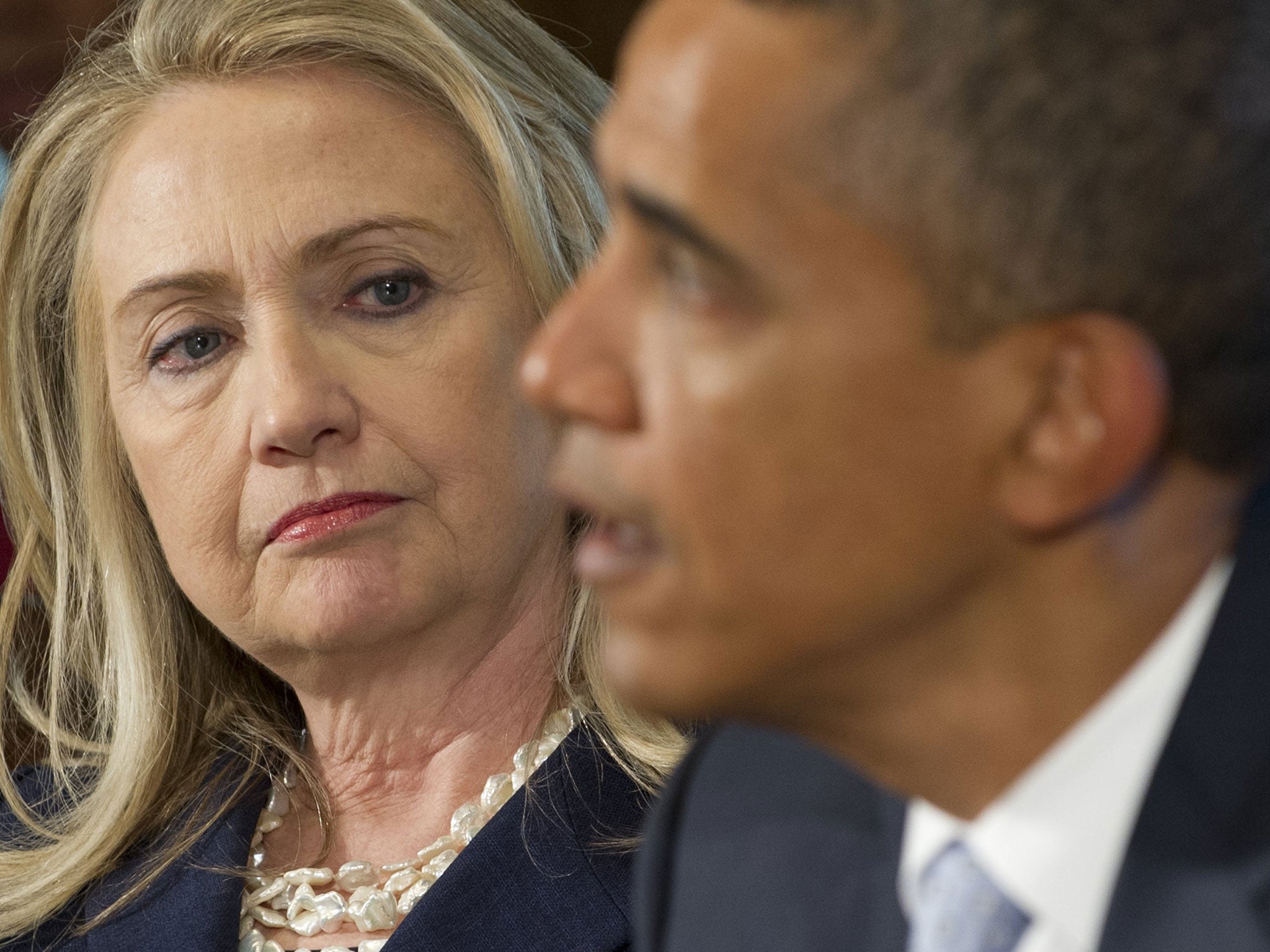Don't shoot the messengers – even if you don't like this American message
The rush to denounce Barack Obama and Hillary Clinton for opining on the EU referendum is typical of a campaign from which considered debate has been depressingly absent

Your support helps us to tell the story
From reproductive rights to climate change to Big Tech, The Independent is on the ground when the story is developing. Whether it's investigating the financials of Elon Musk's pro-Trump PAC or producing our latest documentary, 'The A Word', which shines a light on the American women fighting for reproductive rights, we know how important it is to parse out the facts from the messaging.
At such a critical moment in US history, we need reporters on the ground. Your donation allows us to keep sending journalists to speak to both sides of the story.
The Independent is trusted by Americans across the entire political spectrum. And unlike many other quality news outlets, we choose not to lock Americans out of our reporting and analysis with paywalls. We believe quality journalism should be available to everyone, paid for by those who can afford it.
Your support makes all the difference.We live in strange times politically, when British right-wing Conservatives – the same politicians who normally compete to show devotion to all things American – are heard laying into the US President and his potential successor with almost incoherent venom. It is almost like hearing a group of fervently Catholic bishops suddenly damning the Pope.
Admittedly, Barack Obama and Hillary Clinton have not minced their words on Britain’s in-out EU referendum, either. Mr Obama has predicted that the UK will find itself “at the back of the queue” when it comes to renegotiating trade deals if it leaves the EU, while Ms Clinton has followed in his footsteps by reminding us that she “always valued a strong United Kingdom in a strong EU”.
The rage of Brexiteers on hearing such words is, on one level, understandable. A solid part of the case that they make against Britain’s EU membership rests on the claim that the European club has a not-so-subtle anti-American agenda. For the Americans to fail to appreciate this is wounding for the likes of Boris Johnson and Liam Fox.
However, these two leading lights in the Leave campaign should mind their language. It sounds churlish and personal rather than statesmanlike to call Mr Obama “a has-been”, as Mr Fox said, or “a hypocrite”, to recall Mr Johnson’s tirade.
These two die-hard Atlanticists would normally be the first to urge the world to listen up to whatever advice came from the White House. They sound a little hypocritical themselves, in rounding on the President and Ms Clinton just because – on this occasion – they have some advice for Britain, too.
Nor should we be surprised at what the two Americans said. It was entirely predictable.
The “special relationship” between Britain and the US has always loomed larger in Britain’s imagination than America’s. Ever since the early 1960s, when the then US Secretary of State, Dean Acheson, warned that Britain had “lost an empire and not yet found a role”, America’s leaders have leaned towards Britain finding that new role on the continent of Europe.
Our membership of the European club also suits America’s interests. In the past, when Germany was divided and when the Gaullists ruled France, anti-American, neutralist sentiment was palpable in Europe’s corridors of power. That sentiment has ebbed of late, but it still helps America to have a reliable ally like Britain at the EU top table.
Instead of attacking Mr Obama and Ms Clinton for having had the temerity to suggest where our future should lie, the Leave campaigners should take their words in the spirit in which they were offered – as genuine advice from friendly power with a sound sense of its own strategic needs.
That may well be too much to hope for, though the Brexiteers are not the only ones reacting in knee-jerk style. The way in which both the Remain and Leave camps have either seized on, or dismissed, the Americans’ intervention without a moment’s reflection is depressingly symptomatic of a campaign that, from day one, has been marked by a signal lack of imagination.
Join our commenting forum
Join thought-provoking conversations, follow other Independent readers and see their replies
Comments